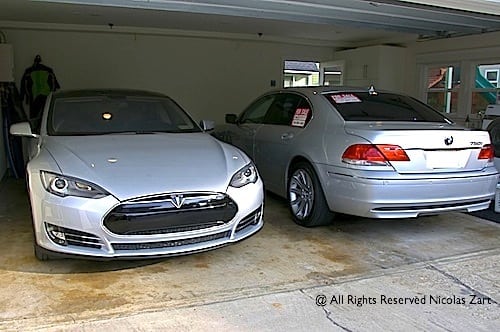The world of automobile is always full of passion and Wall Street’s investment pattern is as emotional as a teenager coming of age. Still, does one car catching on fire warrant a 6% stock drop?
You know we are an extremely enthusiastic bunch in this country, with a heightened sense of sports team loyalty that trickles down to politics and party affinity. News of a single Tesla Motors Model S catching on fire on a highway, after having run over metallic debris on the road is sending Wall Street into a tizzy.
According to Chris Webb, a spokesman for the Washington State Patrol: “The driver stated that he began to smell something burning and a short time later the vehicle caught on fire,” Webb said, citing information from the state trooper investigating the incident.” Reuters reports: “Tesla shares fell 6.2 percent to $180.95 on the NASDAQ, their biggest one-day decline since mid-July.”
Considering 5,020 fires per year are reported in and around gas stations between 2004 and 2008, according to the National Fire Protection Association, and no less then 287,000 vehicle fires per year in 2003- 2007, how come stock shares don’t drop for these companies more? These fires caused an average of 480 civilian deaths, 1,525 civilian injuries, and $1.3 billion in direct property damage. So, why don’t we see stock shares falling accordingly for petroleum companies or regular gasoline carmakers?
Obviously, petroleum companies don’t run gasoline stations, and gasoline car explosion can be the result of many things. Still, if one car catching on fire means a 6% dip in shares, what should the 287,000 vehicle fires a year do for other carmakers?







